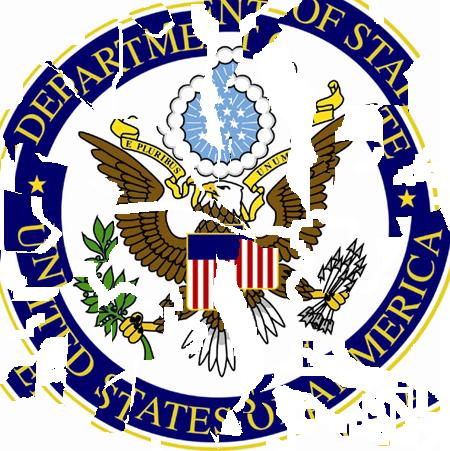Hear ! Hear! MountainRunner on Reforming State
Matt Armstrong has sent out a call to arms on our most important structural problem in foreign policy – that the Department of State is broken as an institution and needs a complete overhaul on the lines of The Goldwater Nichols Act:
The State of State: A Proposal for Reorganization at Foggy Bottom
….The last major reorganization of the State Department was in 1944. That reshuffling was internally driven, and today’s change could occur within the bureaucracy’s walls as well. But the complexity of the department today likely requires a major realignment of fundamentals, something on the order of magnitude of the Goldwater-Nichols Act of 1986. That landmark legislation shifted the Defense Department’s operational focus from the services (Army, Navy, Air Force) to the regional commands (Central Command, Pacific Command, etc.).
Foggy Bottom’s regional bureaus are, on their face, like the Defense Department’s combatant commands. But in reality, they are merely support staff for the embassies (the “country teams”). If Defense were to mimic State’s structure, it would be akin to making European Command subservient to individual U.S. military bases in Europe.
Each of State’s regional bureaus are led by an assistant secretary who reports to the under secretary for political affairs. (The under secretary also has other responsibilities, such as overseeing development and implementation of U.S. government policies with the United Nations and its affiliated agencies, as well as the fight against international
narcotics and crime.) The under secretary, in turn, reports to the Secretary of State. By contrast, the combatant commander, the assistant secretary’s ostensible counterpart in Defense, has a direct line to the Secretary of Defense.1
The State Department’s hierarchy was fine for another era when issues were confined within state borders by local authority, geography, and technology. But in recent years, the structure’s flaws have become conspicuous. The department’s ability to respond to crisis is fragmented and sclerotic. When successes do happen, they tend to be the result of individuals working around or outside the bureaucracy. Secretary of State Hillary Clinton has circumvented the current system with crisis-specific czars called Special Representatives. These Special Representatives, like Richard Holbrooke for Afghanistan and Pakistan, operate like super ambassadors with regional powers that should reside – but don’t – in the regional bureaus.2
For State to be a viable national security actor, the old hierarchy must be flattened and power should be redistributed. It is hard to imagine isolating a combatant commander by reducing his rank to three-star general and having him report to a four-star general – who then decides what the Secretary of Defense should be bothered with.
Read the whole thing here.
This is a subject on which I have written many times and I am in complete agremeent with Matt.
We might even go beyond Goldwater-Nichols and think in terms of the creation of the Department of Defense in 1947 under Truman which saw the end of the Department of War and the absorbtion of the Department of the Navy into Defense along with the other armed services. State’s perverse dysfunctionality and empty pockets budget ( blame Congress here) has crippled public diplomacy, international development aid and the interagency process in which State too often plays the role of bureaucratic obstruction or hapless bystander.
What are the civilian foreign policy tasks we need to accomplish as a country and how can we streamline and empower our agencies so that we can advance our national interests ?




January 14th, 2010 at 6:34 am
We need a more organic foreign policy that allows people to help non-Americans becuase they really want to. African Americans should be given every opportunity to work in places like Hatti and Africa. People who voluntarily go to work for a group of people should be funded as open source diplomats. Micro lending opportunities can be found by open source diplomats. Teaching people about resilience would greatly benefit them.
January 18th, 2010 at 9:35 am
I agree full heartily with Armstrong’s suggestions. If I disagree any, it is because I think he does not go far enough. We should not just regionalize the overarching structure of the Department, but also the ranks of those who man it. That would be my dram retooling of the Department of State.
January 18th, 2010 at 10:02 am
[…] Commentary: “MountainRunner on Reforming State“, Zenpundit, 14 January 2010 — Excerpt: We might even go beyond Goldwater-Nichols and […]